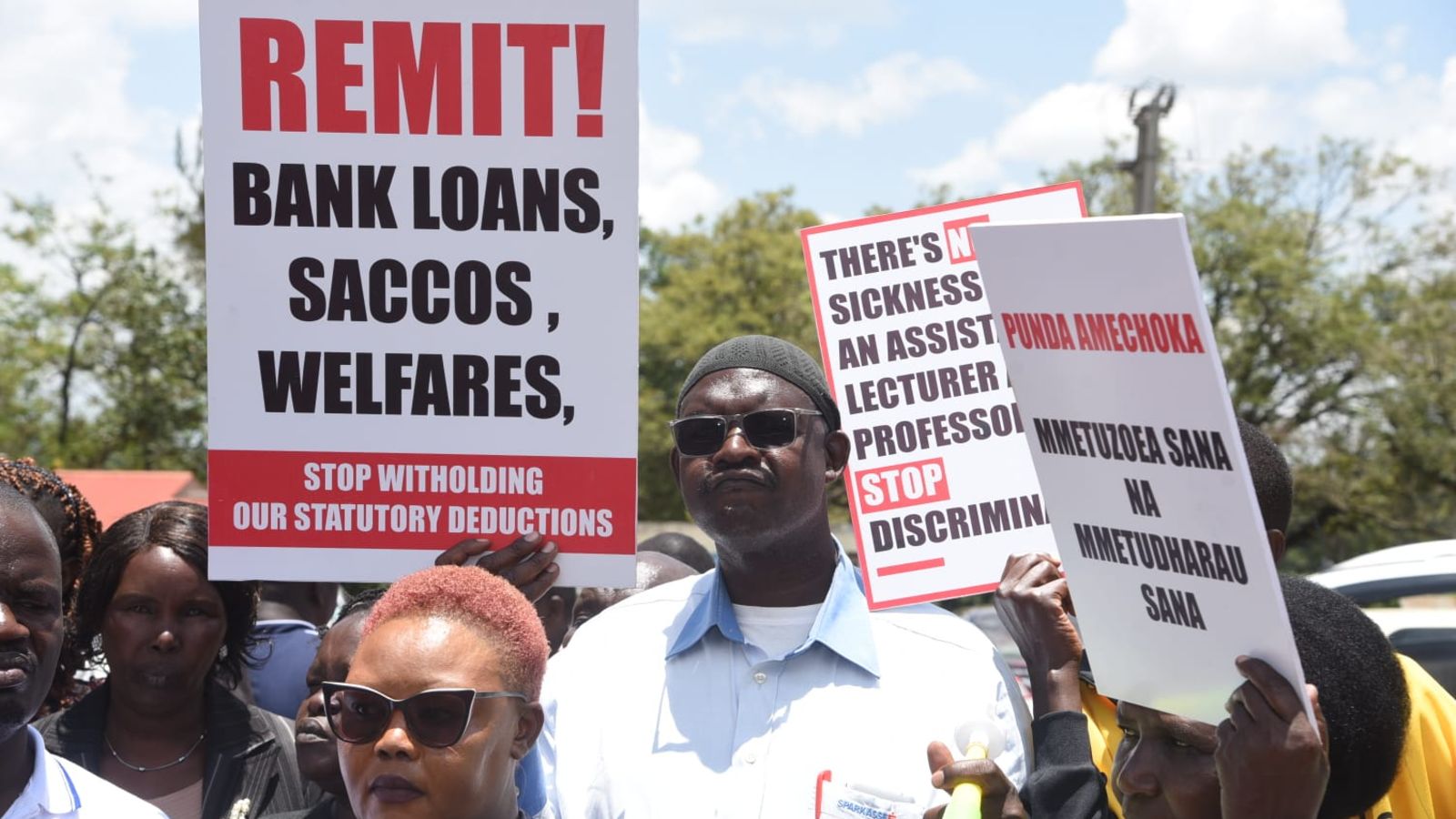
Title: Unraveling the Lecturers' Strike in Kenya: A Call for Action and Reform
The recent lecturers' strike in public universities across Kenya has brought the nation's higher education system to a grinding halt, igniting widespread concern among students, parents, and educational stakeholders. This strike, which began on [insert exact date], is rooted in longstanding grievances regarding inadequate remuneration, poor working conditions, and unmet government agreements that have lingered for years. As faculty members demand their rightful compensation and better resources for education, the repercussions are felt across the academic landscape, pushing the future of thousands of students into uncertainty.
Background of the Strike
The conflict can be traced back to multiple factors, predominantly the ongoing struggle for fair salaries and improved working conditions. Over the past years, university lecturers have engaged in several negotiations with the government, but the promises made have yet to materialize. The contrast between the rising cost of living in Kenya and stagnated salaries has exacerbated the situation, leading many lecturers to feel undervalued and overworked. This strike is not merely a protest against pay; it symbolizes a quest for dignity and recognition within the academic sphere.
Impacts on Students and the Education System
As the strike stretches on, students are caught in the middle, facing disruptions in their academic calendars, delayed graduations, and uncertainty about their future careers. The long-term impact on student morale and the quality of education received cannot be underestimated. Universities already struggling with funding and infrastructure improvement face the added burden of a potential talent exodus, as frustrated lecturers may seek employment abroad or in private institutions. The strike has elicited a call for urgent action from the government and stakeholders to address these issues head-on and restore a semblance of normalcy in the country's educational institutions.
Way Forward
As the lecturers' strike in Kenya enters its critical phase, it is imperative for all parties engaged in the discussions to prioritize genuine dialogue and swift resolution. The government must take earnest steps to address the grievances of university lecturers as a means to safeguard the quality of education in public institutions. Furthermore, the involvement of educational stakeholders, including students and parents, is crucial in crafting sustainable solutions that ensure equity and transparency within the higher education system. The future of Kenya's education depends not only on resolving this strike but also on creating an environment where academic excellence can truly flourish, fostering the next generation of leaders and innovators.


You must be logged in to post a comment.